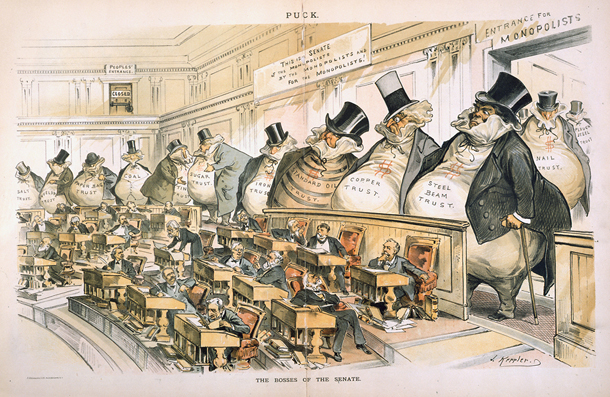KompoZer will ruin this page.
Page last modified November 7, 2022.
September 12, 2013
The Purpose of Society
by Dr. Marek A. Suchenek
Copyright and all
rights reserved.
This article is
posted here for in-class use only. No other use or uses
is/are allowed.
"Necessity
is the plea for every infringement of human freedom.
It is the argument of tyrants; it is the creed of
slaves." [William Pitt The Younger]
"The welfare of the people in particular has always been the alibi of tyrants [...]." [Albert Camus]
Quick links:
Fundamental question,
Simple answer: the purpose
What's not a purpose
Negative aspects of
society
It submits
individual to the group
How much
submission for common good?
Which objectives
submission is necessary and proper?
Example 1: Imigration
Example 2: Hitler against individualism
It
hampers competition
Examples of accepted hampering of
competition
academic degrees
titles to properties
citizenship
The necessity of competition for group well-being
Legislation that protects competition
Social leveling in Soviet Union
Example 3: Lenin against competition
Example 4: Hitler against competition
Examle 5: Sherman Antitrust Act
Social parasitism
Current events ...
Perhaps
the most fundamental question in this class is:
What is the primary
purpose of society?
Unlike individuals,
who do not serve any externally imposed purpose and
are ends on their own right (as some - e.g., Freidrich A. von Hayek - have said, life's sole purpose is to continue itself1), society
does serve a specific purpose.
But what is it?
An exhaustive answer
to this question is lenghty and rather complicated, and many analysts
do their best to obfuscate the truth even more.
They will smuggle
into their masterfully convoluted "answers" mutually
contradictory assertions from which they prove any
false conclusions
they like. (Remember the Bertrand Russell's
proof of "I am the Pope" from two contradictory
assertions:
"2 + 2 = 3" and "2 + 2 = 4".)
Here
is a surprisingly simple but fairly accurate answer to the above question.

Society is a group survival strategy for its
members.
Clearly, forming a society, the main the purpose of which is a group survival strategy, is a logical conclusion from the mentioned above Hayek's thesis that "life's sole purpose is to continue itself".
It allows a group of
individuals, many of whom may not be able to survive on
their own, to form a consensual coalition (a contract, if you
will) that enhances their chances for their individual
survival.
And that is, basically,
all that is to it.
In
particular, providing for those outside of a society is not the primary purpose of
the
society. After all,
helping its adversaries and foes to survive and, perhaps,
multiply will diminish the chances of its own survival.
Also, compelling its
members to become "better" members of a society is not the primary purpose of
the
society.
Also, making every
member of a society equal to
others (a.k.a. social
leveling2) is not the primary purpose of the society.
To its all benefits, society
also has some negative sides.
- It tends to submit an
individual to the group (a.k.a. the collective).
Let's briefly analyze each of these.
1.
It
tends
to submit an individual to the group.
In order for the group survival strategy to
work, individuals must give up on some of their individual
objectives. For if everyone would pursue his egoistic goals
with no consideration to others and the group, there will be
no room for coordinated effort to survive.
There is a question:
How much of
individual way of life needs to be subordinated to the
"common good" in order for the group to survive?

Here are some opposing answers.

One can completely submit the individual to the
group. In this scenario, the benefits of survival might not be
as obvious as one would think. For what good
does it make to live and work in bondage, often in miserable conditions,
under the group's tyranny? Given enough time, all major and well-documented
implementations of socialism converged towards this
scenario.

Or, one can have the individuals relinquish
only minimum of their liberty and property that is
necessary for the group to carry on safely its survival
strategy. This scenario gives the individual a real
chance to pursue his or her happiness as he/she sees it.
So, the second question that should be asked
here is:
For which objectives of the group
survival strategy is it necessary and proper to
infringe upon individual freedoms, and for which is it
not?
Below are two examples of group objectives that unnecessarily and imporperly infringe upon individual freedoms.
Example 1.
An
indiscriminate naturalization policy and inadequate
enforcement of the U.S. border and the immigration laws
facilitates infusion of harmful and asocial individuals (e.g., terrorists,
criminals, psychopaths, etc., and those who would do anything whatever
they can get away with) into the American society.
The threat that some of those individuals pose to
the society is used as a universalist
excuse for further submission of all
individuals to the society by restricting
their rights, for instance the right to keep and bear arms
(2nd Amendment) and the
right to privacy (4th Amendment).
Although
such restrictions are
often characterized as "necessary" for the national security, they
might not have been needed if the border and the immigration
laws were duly enforced, and if the proper standards for
naturalization were followed.
Hence, these restrictions are unnecessary
as what they accomplish could have been achieved with different, less
intrusive (for the American people) means that would not "necessitate"
infringements of individual rights and freedom.
Note: History provides a long list of atrocities that innocent people were the targets of. Whatever bad happened elsewhere can happen in the U.S. as long as we allow the individuals who were involved in committing the said atrocities come and settle here.
Example 2.
A
quote from Adolf Hitler who was arguably the most
infamous advocate of submitting the individual to the group:
"It is thus necessary that the individual should finally come to realize
that his own pride is of
no importance in comparison with the existence of his
nation; that the position of the individual ego is conditioned
solely by the interests of the nation as a whole; [...] By this we
understand only the
individual's capacity to
make sacrifices for the community, for his fellow men. "
http://quotes.liberty-tree.ca/quote/adolf_hitler_quote_c843
Would you agree? I hope you would
not.
Here is one more of Hitler's
collectivist ideas:
"The good of the community takes priority over that of the
individual."
2. It hampers competition.
This is one of the major
problems with any society, so it needs to be
addressed properly.
Under the circumstances of shortage of resources, an
individual who cannot compete is unlikely to survive on his
own. Protecting that individual from competitive pressure is
often the most practical way to secure his sustained survival.
And the restricting of
competition usually does not end here. For example:
- Normally, those
who got their academic degrees do not have to
compete for academic jobs with those who did not. This allows
the former to focus on their academic duties rather than competing
with those who are unlikely to carry on these duties.
- Normally, those
who have a title to a property do not have to compete
for the right to its exclusive use
with those who don't. This provides property protection that is necessary
for building a wealth-producing economy.
- Normally, those who
are members of the class The People
do not have to compete for the right to reside in the U.S.
and to benefit from its economic strength with those who
are not members of that class. This allows the former to
focus on producing and inventing rather than competing
with the latter for living space, natural resources of the U.S.,
and the fruits of the former's work and creativity.
The list goes on and on and
on ... And for good reasons
(some of which were quoted above).
But
meaningful
competition is necessary for our economic well-being.
It makes individuals genuinely willing to succeed in achieving what they are competing for.
Therefore, it is imperative to not
curtail competition any more than absolutely necessary for the
effectiveness of the survival strategy that society provides
to its members, and to minimize the lasting
counter-competitive effects of such curtailment whenever it
takes place.
This postulate is particularly critical in all cases where
the losses arising form a specific curtailment of
competition may considerably outweight its benefits.
The
U.S. Congress and the courts have long been aware of that.
For instance, the anti-trust
law was passed in 1890 in order to minimize
curtailment of competition due to monopolization.
Unfortunately, the current trend goes in the opposite
direction (note the
mergers of large companies into even larger companies),
for the dertiment of most of us, Americans.
Oddly enough, some of those (ostensibly?) concerned with this trend towards monopolization are postulating ... more monopolization; for instance, monopolization of political power, monopolization of heathcare, monopolization of transportation, etc.
Also,
social leveling
(an idea brought to America from  Soviet Union and Eastern
Europe) and other means of forced "equalization" of
individuals have profound
inhibiting effects on the competitiveness of
individuals, and as such, may threaten economic well-being of us and our
posterity.
Soviet Union and Eastern
Europe) and other means of forced "equalization" of
individuals have profound
inhibiting effects on the competitiveness of
individuals, and as such, may threaten economic well-being of us and our
posterity.

Top three Soviet leaders in 1919.
From the left to the right: Stalin, Lenin, and Trotsky.
Example 3.
Lenin (the main architect of the  Soviet Union)
was a harsh critic of competition:
Soviet Union)
was a harsh critic of competition:
In the capitalist countries the
opportunists and revisionists are opposed to a socialist
revolution. [...] They are against working-class solidarity
and, in effect, deny proletarian hegemony in the struggle
against imperialism. In
their attempt to derogate the time-tested experience of
socialist construction the social-reformists and
revisionists preach a "liberalised" socialism which rejects
the leading role of the Marxist-Leninist parties, replaces
socialist democracy by a liberalism of a bourgeois type,
undermines centralised planning and economic management, and
encourages market anarchy and
competition.
http://www.revolutionarycommunist.org/wweb/leninindexfiles/llw-all.htm
Well, Lenin's ideas did work really well in the
Soviet Union, didn't they? (Of course, they did not.)
A quote on competition vs. emulation (a  Soviet substitute of competition):
Soviet substitute of competition):
"The first variant ["competition"] is a literal translation of the
Russian term ["конкуренция", "konkurenciya"], commonly used by
Western authors. The second form [emulation] is an official Soviet
translation of the term, intended to put distance from the
"capitalist competition", which in its turn was translated as
"капиталистическая конкуренция", "kapitalisticheskaya
konkurenciya".
There was a significant amount of propaganda along the lines that "capitalist competition" favors
only the winning capitalist, while "socialist emulation"
benefits all."
http://en.wikipedia.org/wiki/Socialist_emulation.
Example 4.
Hitler "was strongly against free competition".
Example 5.
Two quotes from Encyclopædia Britannica:
"Sherman
Antitrust Act, first legislation enacted by the United
States Congress (1890) to curb concentrations of power that
interfere with trade and reduce economic competition. It was
named for U.S. Senator John Sherman of Ohio, who was an expert
on the regulation of commerce.
One of the act's main provisions outlaws all combinations that restrain trade
between states or with foreign nations. This prohibition applies
not only to formal cartels but also to any agreement to fix prices, limit industrial
output, share markets, or exclude competition.
A second key provision makes illegal all attempts to monopolize any part of
trade or commerce in the United States. These two
provisions, which comprise the heart of the Sherman Act, are
enforceable by the Department of Justice through litigation in
the federal courts. Firms found in violation of the act can be
ordered dissolved by the courts, and injunctions to prohibit
illegal practices can be issued. Violations are punishable by
fines and imprisonment. Moreover, private parties injured by
violations are permitted to sue for triple the amount of damages
done them."
"One notable example late in the 20th century was the 1984 breakup of the
American Telephone & Telegraph Company, which left
the parent company, AT&T, as a provider of long-distance
service while seven regional “Baby Bell” companies provided
local telephone service. Many of the original “Baby Bell”
companies have since merged. One of the largest antitrust suits
since that time was brought against the Microsoft Corporation. A
decision in 1999 found the company had attempted to create a
monopoly position in Internet browser software, but a
court-ordered breakup of Microsoft was overturned by an appeals
court in 2001."
http://www.britannica.com/EBchecked/topic/540115/
One of the pathological consequences of hampering competition is social parasitism - an opposite to work ethic. Indeed, social parasites (a.k.a. "free riders")
leave off the work of others while protecting themselves from
punishment or elimination (that competition incorporates to some
degree) with the society's counter-competitive means. This leads to even bigger problem since collectivist governments usually
facilitate social parasitism and, eventually, become parasitic
governments.
Current events ...

DOJ Files Antitrust Lawsuit Against Google, Draws Bipartisan Praise
https://www.theepochtimes.com/lawmakers-praise-doj-antitrust-lawsuit-against-google-say-its-long-overdue_3545707.html
Lawmakers in the House and Senate praised a Department of Justice (DOJ) lawsuit against Google over allegations that the tech giant used its power to preserve its monopoly.
"Today's lawsuit is the most important antitrust case in a generation,"
Sen. Josh Hawley (R-Mo.) said in a statement after the filing. "Google and its fellow Big Tech monopolists exercise unprecedented power over the lives of ordinary Americans, controlling everything from the news we read to the security of our most personal information. And Google in particular has gathered and maintained that power through illegal means."
The lawsuit drew bipartisan support. House Antitrust Subcommittee
Chairman David N. Cicilline (D-R.I.) said in a statement that the
lawsuit was "long overdue."
The Justice Department's Antitrust Lawsuit Against Google Isn't Enough to Stop the Abuses of Big Tech
https://time.com/5901696/google-antitrust-case/
This week's Department of Justice antitrust suit against Google is the
agency's first major case against Big Tech since the 1998 Microsoft
suit. It comes on the heels of a 451-page report by the House Antitrust
Subcommittee that enumerates the dubious and harmful practices of the
dominant digital companies and proposes the reinvigoration of the
antitrust laws. The Federal Trade Commission (FTC) is reportedly not
far behind with its own antitrust action against Facebook.
All these initiatives are important, but they are not sufficient.
The abusive practices of the dominant digital platforms are so widespread and have become so embedded that there is no single solution. What is needed is a cocktail of remedies that blends antitrust with ongoing regulatory oversight.
Justice Department Sues Monopolist Google For Violating Antitrust Laws
Department Files Complaint Against Google to Restore Competition in Search and Search Advertising Markets
https://www.justice.gov/opa/pr/justice-department-sues-monopolist-google-violating-antitrust-laws
As one of the wealthiest companies on the planet with a market value of $1 trillion, Google is the monopoly gatekeeper to the internet for billions of users and countless advertisers worldwide. For years, Google has accounted for almost 90 percent of all search queries in the United States and has used anticompetitive tactics to maintain and extend its monopolies in search and search advertising.
[...]
These and other anticompetitive practices harm competition and consumers, reducing the ability of innovative new companies to develop, compete, and discipline Google's behavior.
The antitrust laws protect our free market economy and forbid monopolists from engaging in anticompetitive practices.
They also empower the Department of Justice to bring cases like this
one to remedy violations and restore competition, as it has done for
over a century in notable cases involving monopolists over other
critical industries undergirding the American economy like Standard Oil
and the AT&T telephone monopoly. Decades ago the Department's case
against Microsoft recognized that the antitrust
laws forbid anticompetitive agreements by high-technology monopolists
to require preinstalled default status, to shut off distribution
channels to rivals, and to make software undeletable. The Complaint alleges that Google is using similar agreements itself to maintain and extend its own dominance.
House Panel Requests Documents From Facebook, Google, Amazon, Apple in Probe
https://www.theepochtimes.com/house-panel-requests-documents-from-facebook-google-amazon-and-apple-in-probe_3082414.html
"Big tech companies are facing a historic wave of scrutiny, with antitrust investigations launched at both the state and federal level. The Justice Department (DOJ) and the Federal Trade Commission are investigating Facebook, Google, Apple, and Amazon for potential violations of antitrust law. A partnership of about 50 U.S. states and territories, led by Texas Attorney General Ken Paxton, is also probing Googles practices, while a separate bipartisan coalition of attorneys general in eight states are looking at possible antitrust issues with Facebook."
[...]
"In July, the Justice Department announced that its antitrust division is "reviewing whether and how market-leading online platforms have achieved market power and are engaging in practices that have reduced competition, stifled innovation, or otherwise harmed consumers."
Senate Panel Not Impressed With Google Exec's Evasiveness on Monopoly Issues
https://www.theepochtimes.com/senate-panel-not-impressed-with-google-execs-evasiveness-on-monopoly-issues_3502755.html
"A top Google executive was confronted repeatedly on Sept. 15 [2020] by Republicans and Democrats on the Senate Judiciary Committee's anti-trust subcommittee regarding the tech giant's monopolistic dominance of the digital advertising market."
.9b1acd085634
"There has been a lot of talk in academic and policy circles recently about the failure of antitrust law to put the brakes on a decades-long merger wave that has consolidated industry after industry into a handful of dominant players, in the process deterring innovation and entrepreneurship, slowing economic growth, and widening the income gap between the rich and everyone else."
"[...] over the past 40 years, judges and regulators, in a vain search for more objective and scientific criteria, have taken a ridiculously cramped view of the antitrust law.
Too many cases are reduced to a highly technical econometric quarrel
about whether prices will rise or fall rather than a more full - if
somewhat more subjective - analysis of whether competition is likely to
be reduced."
Comment (MS): Are you still surprised that disillusioned (and misguided) masses opt for socialism? Monopolies and (trans-national) trusts are killing the modern Western free-market capitalism, together with its unsurpassed productivity and affordability that made wealth and good lives available to ordinary people.
The rational remedy would be to update and strictly enforce the Sherman Anti-Trust Act rather than trying to follow the Venezuela model. After all, replacing corporate monopolies with government monopoly, as the disillusioned (and misguided) masses did in Cuba (in 1958), Soviet Union (in 1917), China (in 1949), Venezuela (in 1998), and several other nations, seems like a "cure" that is worse than the disease it was supposed to heal.

Reference
Against the mainstream: Nazi
privatization in 1930s Germany
by Germà Bel
Economic History Review (2009)
pp. 1 - 22
http://www.ub.edu/graap/EHR.pdf
(a link to the original
manuscript at Universitat de Barcelona I Ppre-IREA
http://www.ub.edu/graap/nazi.pdf)
Footnote 1. This is why your life is supposed to be happy so that you have a strong desire to continue living. And there is no substitute for freedom when it comes to your pursuit of happiness and survival. The above logically explains the proclamation of "inalienable rights" to "life, liberty, and the pursuit of happiness" in the Declaration of Independence.
Footnote 2. Social leveling and freedom are irreconcilable as different individuals will exercise their freedom differently and with different outcomes. Thus the only practical way to level a society leads through deprivation of individuals of their freedom.







 Soviet Union and Eastern
Europe) and other means of forced "equalization" of
individuals have profound
inhibiting effects on the competitiveness of
individuals, and as such, may threaten economic well-being of us and our
posterity.
Soviet Union and Eastern
Europe) and other means of forced "equalization" of
individuals have profound
inhibiting effects on the competitiveness of
individuals, and as such, may threaten economic well-being of us and our
posterity.
 Soviet Union)
was a harsh critic of competition:
Soviet Union)
was a harsh critic of competition: Soviet substitute of competition):
Soviet substitute of competition):


